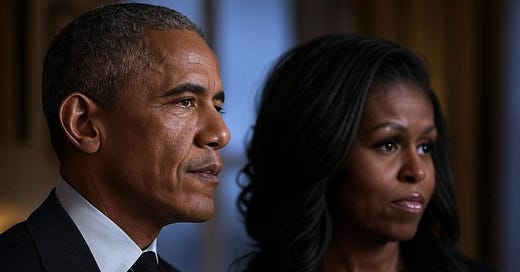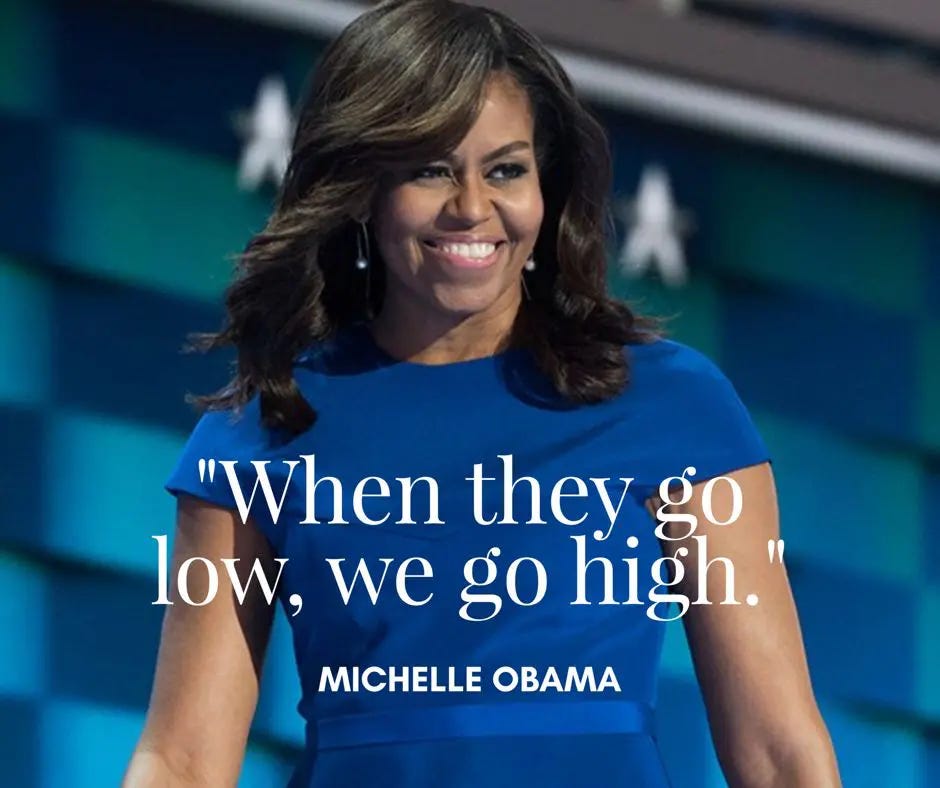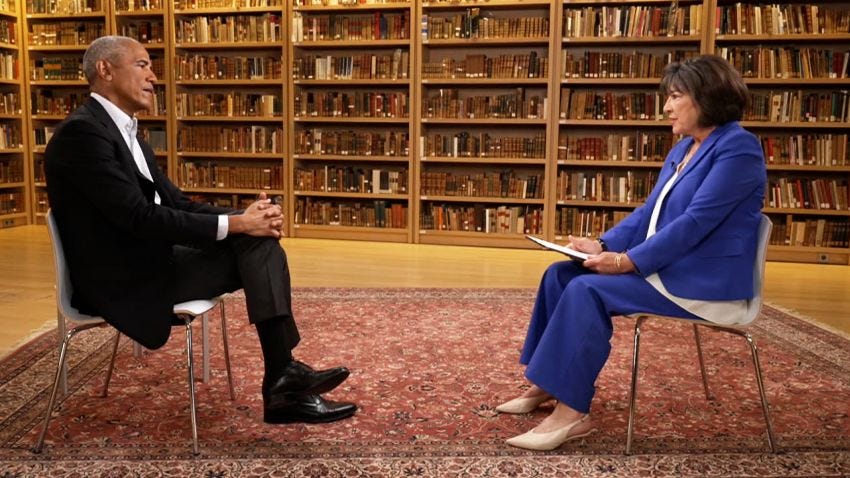“Deep Deficit”: From Devotion to Distance—the Domestic Drift of the Obama Darlings
Whether they choose to reconcile or respectfully step away, their legacy as individuals and as a couple will endure—not as a fairy tale, but as a reflection of real-life complexity.
“Deep Deficit”: Behind the Curtain of America’s Most Watched Marriage
A Moment of Unfiltered Honesty
In a rare and disarming revelation, former U.S. President Barack Obama laid bare the personal cost of his historic presidency—not in terms of policy or fatigue, but in the emotional ledger of his marriage. Speaking at Hamilton College on April 3, 2025, Obama confessed: “I was in a deep deficit with my wife… I have been trying to dig myself out of that hole by doing occasionally fun things.” It wasn’t political theater; it was an unfiltered acknowledgment of the strain eight years in the White House placed on his relationship with Michelle Obama.
This moment of vulnerability came as whispers about their relationship grew louder, amplified by Michelle’s absence from major public events such as Donald Trump’s 2025 inauguration and Jimmy Carter’s funeral. The Obamas—once the paragon of modern partnership—suddenly found themselves under the microscope for reasons far more personal than political.
“Managing a Marriage Under a Microscope”
Obama’s reflection wasn’t just about missed date nights. It was a candid admission of how public duty can drain private life. He described his post-presidency as a balancing act between philanthropy and the seemingly endless task of memoir writing—likening it to churning out “50 term papers.” But it was his aside about marriage that struck a chord: “You’re not just managing a country; you’re managing a marriage under a microscope.”
The metaphor of a “deep deficit” was poignant, suggesting emotional distance accrued over years of public scrutiny and relentless schedules. Now, with life less regimented, Obama is attempting a different kind of diplomacy—shared vacations, dinners, and simply showing up.
The Absences That Sparked Questions
Michelle Obama’s notable absences have been a flashing red light for tabloids and curious onlookers:
Trump’s 2025 Inauguration: Barack went solo, while Michelle cited prior commitments—drawing comparisons with her enthusiastic appearance at Biden’s 2021 swearing-in.
Jimmy Carter’s Funeral: Barack again appeared alone, though family sources claimed Michelle was “supporting from afar.”
Public Sightings: Barack has been seen dining and attending NBA games with daughters Malia and Sasha, but rarely with Michelle in recent months.
The silence from the Obamas has been strategic, dignified—and in the eyes of many, telling.
Michelle Obama: More Than a First Lady
Before stepping onto the global stage, Michelle Obama was already a powerhouse. A Princeton and Harvard Law alumna, she was a successful attorney at Sidley Austin LLP when she met Barack. Her trajectory included key roles at the University of Chicago, championing diversity and access.
As Barack’s political career gained traction, Michelle remained the anchor—managing professional responsibilities while raising Malia and Sasha, and becoming his closest confidante and most compelling campaigner. Her powerful presence during Barack's 2008 run helped humanize him and neutralize doubts about his background, earning her the nickname “the closer.”
Raising Daughters in the White House Bubble
Throughout her tenure as First Lady, Michelle called herself "Mom-in-Chief." She was deeply committed to ensuring Malia and Sasha had as normal a childhood as possible, despite being raised in the most scrutinized household on Earth. Her parenting philosophy emphasized authenticity: “I never felt my job was to create mini-mes… I had to raise them to be stand-up young people on their own.”
That philosophy bore fruit—Malia is now forging a path in filmmaking, and Sasha recently graduated from USC—evidence of a mother’s steady hand behind the scenes.
A Legacy of Her Own
Michelle’s initiatives as First Lady left a lasting imprint. From tackling childhood obesity through Let’s Move!, to empowering military families with Joining Forces, to advocating girls’ education globally with Let Girls Learn, her influence reached far beyond photo ops and ceremonial roles.
She made the White House more inclusive—inviting artists of color, hosting cultural nights, and making marginalized communities feel seen. Her ability to operate in tandem with Barack while championing independent causes redefined the role of First Lady.
Speculation, Silence, and Strategic Rebuttals
Public fascination with the Obamas' personal lives reached a fever pitch in 2024 when rumors swirled around an alleged Barack-Jennifer Aniston connection following a Los Angeles fundraiser. Aniston swiftly dismissed the story with a chuckle on Jimmy Kimmel Live!: “I’ve met him once… I know Michelle more.” In typical form, the Obamas didn’t issue statements or press releases. Instead, they posted matching Valentine’s Day selfies, captioned simply: “Still choosing us.” It was subtle, dignified, and quintessentially Obama.
Michelle’s response to public adversity has always been rooted in poise, not provocation. Her now-iconic mantra—“When they go low, we go high”—first spoken at the 2016 Democratic National Convention, was more than a political line; it became a moral compass. In the years since, she has lived those words, choosing silence over spectacle, elegance over escalation. Even as gossip columns churn and social media speculates, Michelle’s refusal to dignify rumor with reaction speaks volumes. Her composure is not passivity—it’s power.
Love, Legacy, and the Limits of Public Expectation
What the Obamas are navigating is not unfamiliar to many couples—especially those who’ve weathered decades of shared goals, growing pains, and diverging aspirations. Their story speaks to the reality that even iconic partnerships require constant tending. In cultures like India’s, where marriage is often idealized as a sacred bond spanning “seven janams,” the idea of separation—particularly in later life—challenges long-held norms.
Still, there’s courage in admitting when love evolves. As someone once said: “If you cannot live together amicably, you should at least part amicably.” And perhaps Groucho Marx, in a flippant moment of comedic brilliance, captured a truth many discover later in life: “Marriage is an institution, and who wants to live in an institution?”
The Obamas, whatever direction their relationship takes, have demonstrated one thing consistently: dignity. Whether they choose to reconcile or respectfully step away, their legacy as individuals and as a couple will endure—not as a fairy tale, but as a reflection of real-life complexity.
In a world hungry for perfect narratives, maybe what we need is more honesty like Obama’s—about deficits, about love, and about the price of greatness.
Obama Lectures Modi on Minorities and Human Rights: Irony dies a thousand deaths
Obama’s Unsolicited Advice: Barack Obama, the 44th President of the United States from 2009 to 2017, recently gave a wide-ranging interview to CNN's Christiane Amanpour on "The Challenge to Democracy." The 55-minute interview, recorded earlier in Greece, was telecast on an “interesting” date, 22.06.2023, the day when the US President Joe Biden and Congr…








No one could have expressed better the complexities of a high profile marriage. Their presence is so arresting. Great write up.
https://youtu.be/JsNl46TTpKs?si=2rizQLC69je9QXmC